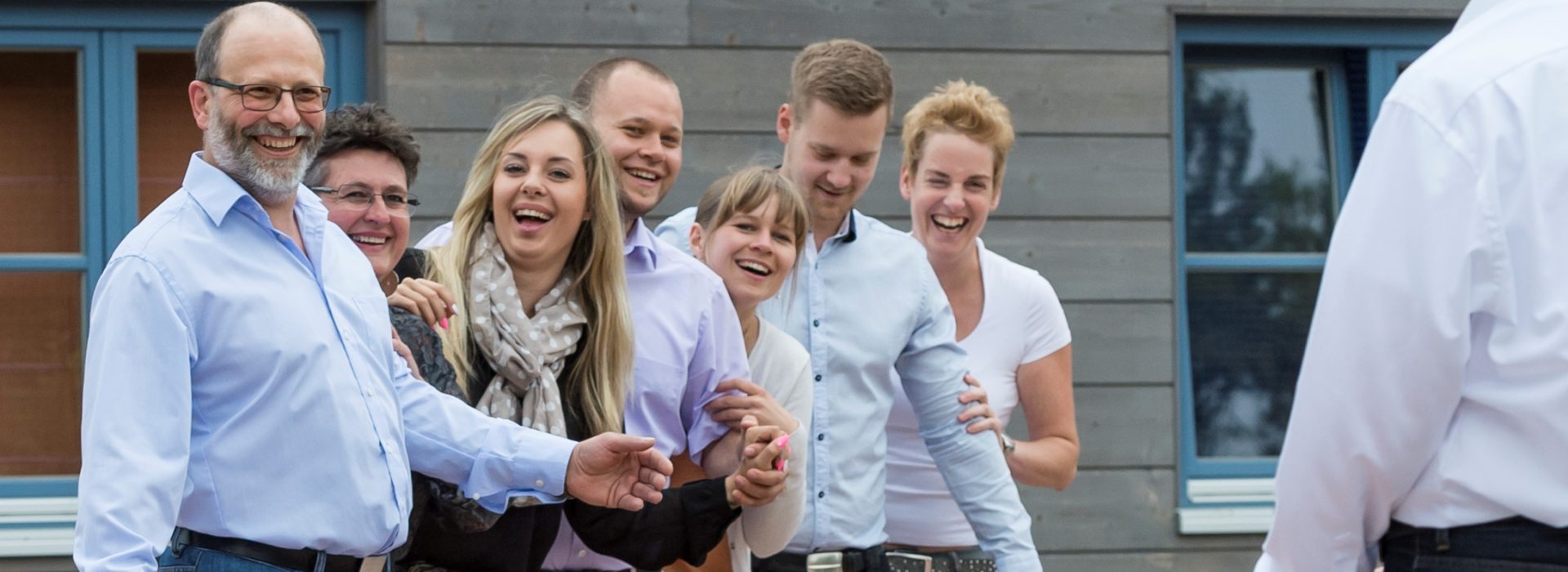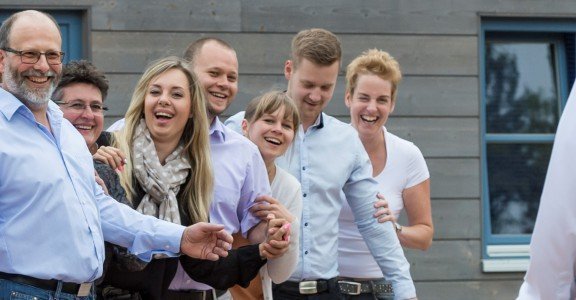
Most projects start as a slow trickle; team members only join one by one. Exasperating discussions take place all the time, addressing issues which have effectively been clarified numerous times already – just not with the right people. And team members often work alongside one another at best, if not against one another. Does your team also need a number of weeks before you can describe your project work as productive?
Our kick-off workshop explains how to formulate common goals, allocate roles, and focus on effective team-building activities. We tailor the kick-off workshop to your project and team situation. It makes a huge difference whether a team comprises of 5 or 50 people, whether the team members already know one another, or whether they have never even met before. Whether a team sits together in a local environment, or whether team members are sited in globally diverse locations does also play a crucial role. All of these things have a great influence on how the workshop is conducted.
We use the experiences of the group dynamic in order to lead the project team through the phases of team development in a targeted manner, and to promote “storming”, i.e. the sometimes controversial discussions within the project and with those involved. We are fundamentally interested in constructive solutions and always effect control in this direction. During workshops, we utilize a mix of group work, individual work, working on team questions and theoretical inputs. We are also happy to integrate teambuilding exercises, either indoors or out, in order to support the process of getting to know each other and to strengthen the “us” feeling.

Our project kick-off workshop helps you as a project leader and your team to start well on the project and to work productively from the outset. It is far more than a well intended “motivation speech” given by a manager at the start of a project, something often known as a “kick-off”. You start your projects together with a clear understanding of the goals, the agreed division of tasks and roles. You form a team and agree on rules for your communication and cooperation.